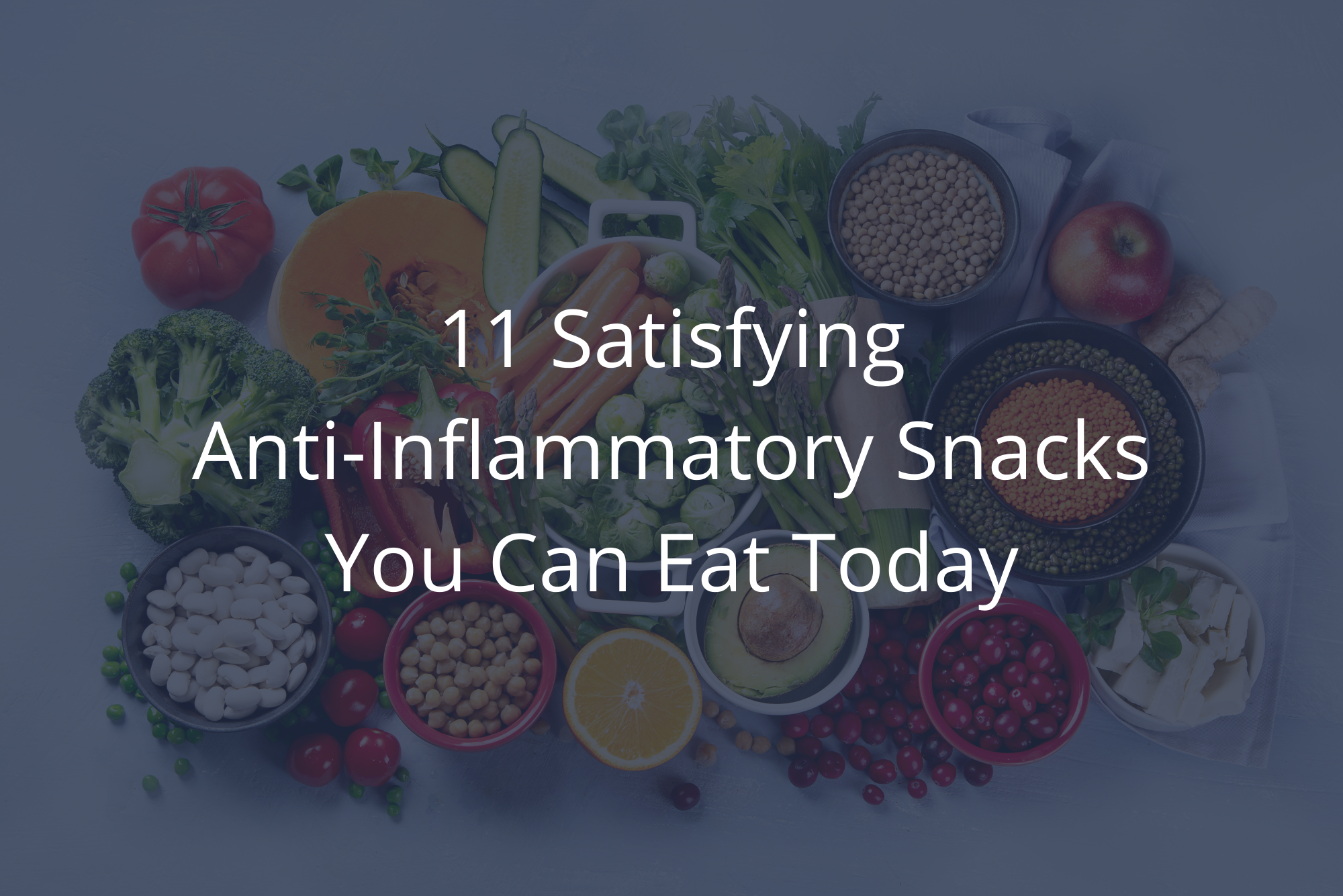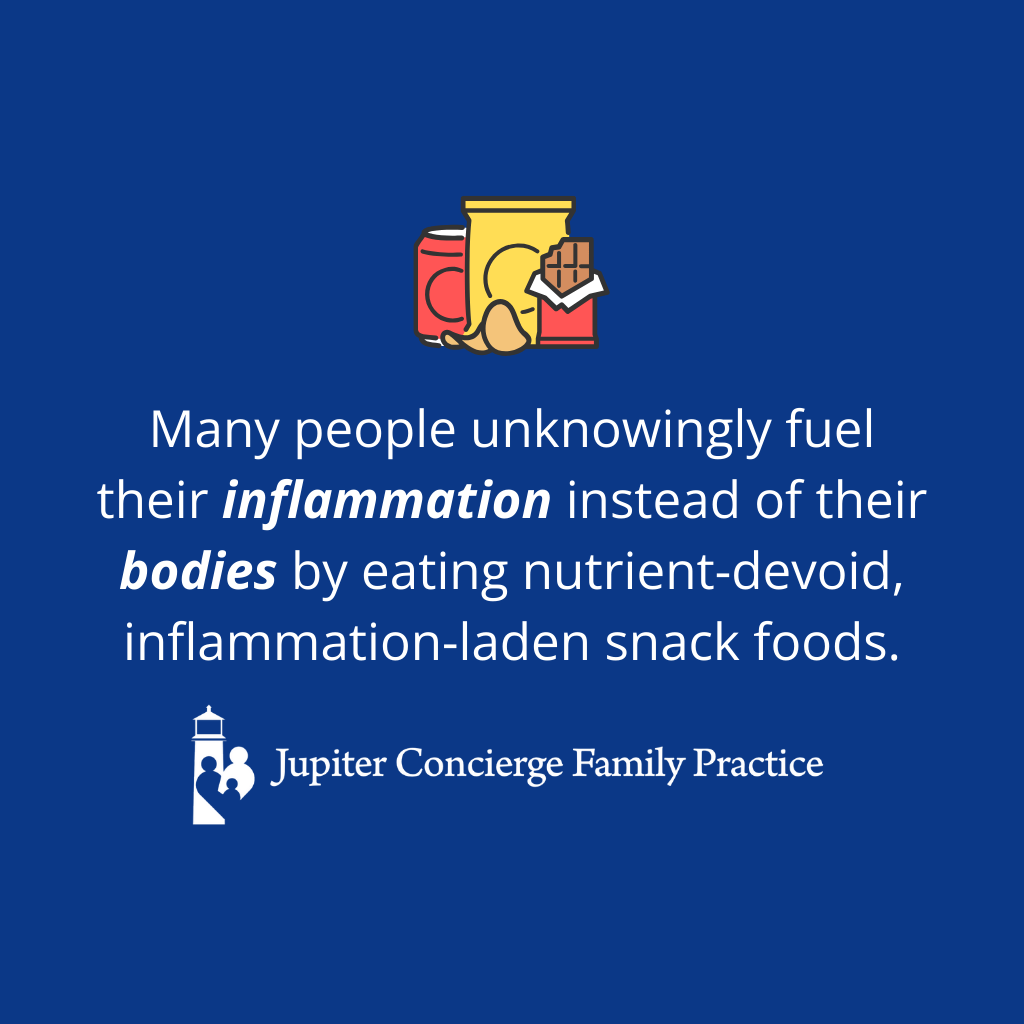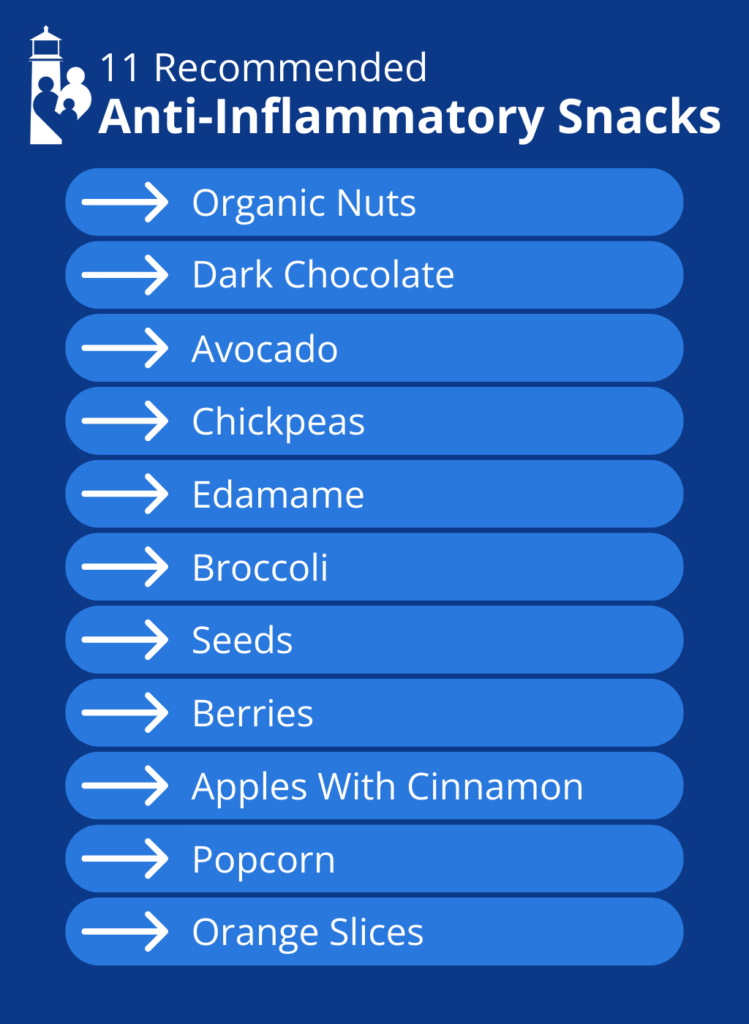
Snacking gets a bad rap, and I’m here to defend its honor. Snacking is not innately unhealthy. It can be a great way, in fact, to stabilize blood sugar between meals.
It is true, though, that most convenience snacks are unhealthy. But with a bit of planning, snacking can be good for you.
The Skinny on Anti-Inflammatory Snacks
Inflammation is part of your body’s natural immune response to aid in short-term healing. Persistent, long-term inflammation becomes one of the Four Pitfalls of Health, disrupting homeostasis and contributing to various disease processes in the body.
Typical convenience snack foods are pro-inflammatory, meaning they cause inflammation — and not the helpful kind. Conversely, a diet rich in nutrient-dense, anti-inflammatory foods actively reduces inflammation and provides necessary resources for your body.
Unfortunately, many people unknowingly fuel their inflammation instead of their bodies by eating nutrient-devoid, inflammation-laden snack foods.
For example, current research demonstrates that certain artificial food dyes promote inflammation. Natural plant pigments, however, not only avoid causing inflammation, they also actively fight it.

Recommended Anti-Inflammatory Snacks
What should you eat for your afternoon snack? To begin, try something from the list of foods below. Within each, you’ll find powerful anti-inflammatory nutrients like omega-3 fatty acids, vitamin E, and/or the plant pigment quercetin.
1. Organic Nuts
High in omega-3 fatty acids, nuts are excellent anti-inflammatory snacks. Eat them plain or in the form of nut butter. I especially recommend walnuts and hazelnuts.
2. Dark Chocolate
Because it contains flavonols that actively reduce inflammation, dark chocolate can be a delightful snack. Take care that the cacao percentage is a minimum of 72%. And don’t overdo it; it’s still chocolate and contains fats. Sprinkle some chunks into your walnuts to keep things in balance.
3. Avocado
High in the antioxidant vitamin E, avocados promote healthy gut flora, which aids in digestion and can prevent inflammation. Try it on some whole-grain, nutty bread.
4. Chickpeas
Also known as garbanzo beans, chickpeas are complex carbohydrates that help prevent sugar spikes (a contributor to inflammation). They’re also high in fiber and phytonutrients. Chickpeas can be cooked and eaten as is or used to make hummus or even pasta.
5. Edamame
Rich in antioxidants, edamame is steamed or boiled soybeans (still in the pod).
6. Broccoli
This hearty vegetable is tasty raw, roasted, or steamed. As a sulfur vegetable (and overall wonder-food), broccoli provides a crucial building block of glutathione, a substance our body produces to decrease inflammation.
7. Seeds
Seeds are sources of omega-6 and omega-3 fatty acids, including alpha linoleic acid. Try mixing sunflower and pumpkin seeds with nuts and a small amount of dried fruit for a sustaining trail mix.
8. Berries
High in antioxidants and anthocyanins, raspberries, blueberries, strawberries, and blackberries reduce inflammation.
9. Apples With Cinnamon
Apples — and especially the skin — contain vitamin C. (Since you’re eating the skin, get organic if possible.)
Cinnamon is a well-known anti-inflammatory, so sprinkle some on your apple slices. Eat them plain, or dipped in organic walnut or hazelnut butter.
10. Popcorn
In moderation (so as not to spike your blood sugar), antioxidant-rich popcorn can be an excellent anti-inflammatory snack. Be sure to pop kernels on the stove — not in a microwaved bag — to avoid inflammatory chemicals and coatings.
11. Orange Slices
These are rich in vitamin C and delicious. Notice, however, that orange juice didn’t make this list; it’s too sweet. Whole fruits provide the fiber to counteract the sugar, but fruit juices spike your blood sugar horribly.

Anti-Inflammatory Snacks: Final Thoughts
Snacking can be a great way to curb hunger and reduce inflammation at the same time. But remember, your snack can quickly go from anti-inflammatory to pro-inflammatory if you smother it in cheese or mix it with M&M’s. Stick to whole, unprocessed snacks to satisfy your hunger and avoid the inflammatory junk!

Dr. David Rosenberg
Dr. Rosenberg is a board-certified Family Physician. He received his medical degree from the University of Miami in 1988 and completed his residency in Family Medicine at The Washington Hospital in Washington, Pennsylvania in 1991. After practicing Emergency Medicine at Palm Beach Gardens Medical Center for two years, he started private practice in Jupiter, in 1993. He is an avid baseball fan and Beatles fanatic, since he was 8 years old. He has been married to his wife, Mary, since 1985 and has three grown children.
David completed additional studies at Mercer University, Macon, Georgia and obtained a BS in Chemistry in 1983.
“My interests include tennis, snow skiing, Pilates and self-development.”
